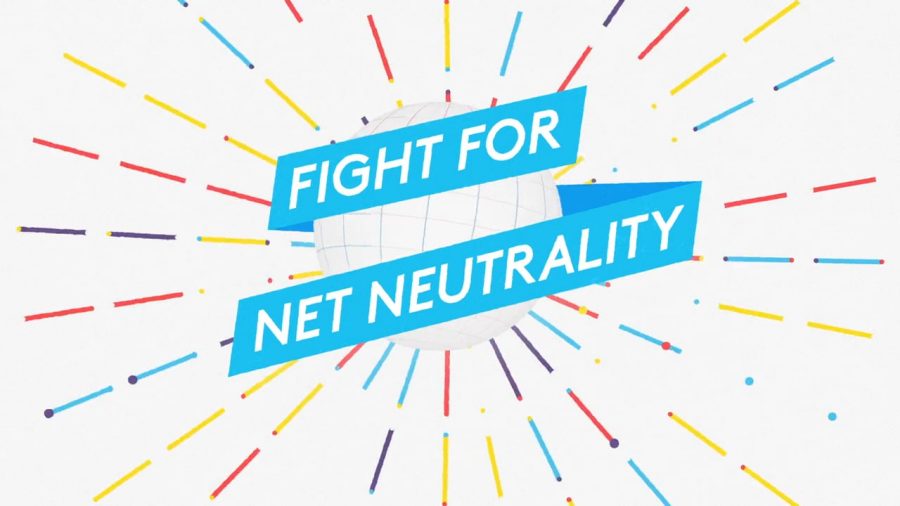Let net live free
December 14, 2017
The internet as it’s known may be gone forever. Net neutrality, the concept that all services on the internet should be treated the same, is under direct fire after a repeal proposal made by Ajit Pai in November that would get rid of the 2015 bill that established it. This proposal is a direct violation of the understood rights of all people, and should be reevaluated before the “free internet” is gone forever.
To begin with, the implications of what could happen if the net neutrality bill from 2015 is repealed are tremendous. The proposal to eliminate net neutrality opens the playing field for competing internet service providers, or ISPs, to slow down or block services. This actually happened with Comcast and Netflix in 2014, when, according to Time, “Comcast was caught slowing down streaming services and making people pay extra premiums because they weren’t profiting from the service.” This sad occurrence could become a reality for internet users if net neutrality is eliminated. Most notably, it puts low-income internet users at an incredible disadvantage: services that were once free or cheap to access quickly would be slowed down and prices to access would rise.
The next concern is how the internet could be divided into “slow-access” and “fast-pass” for poor and rich consumers. This violates what the internet has stood for since it first came into existence: free and open information for all that can get access to it. Eventually, this could lead to poor users not having access to information whatsoever, leading to greater lobbying, and less ability to fight for issues that affect a certain income-bracket, and a social hierarchy that people have fought against for years.
The opposition may argue that net neutrality contributes to slower frequency altogether, and sites that support the repeal are doing so for the sake of their users. While this is a good line of thinking for sites that could support the fees that would follow the repeal, it puts smaller sites at a huge disadvantage. What happens following the elimination of net neutrality is a rise of fees for fast-access via popular ISPs: those that can’t afford to pay are likely to lose consumers because their sites will be increasingly slow and tiresome to use.
The free internet has grown from a simple being to an incredibly complex one with both understood rules and ones that are set in stone. By eliminating these rules, we lose the concept of the open internet and much of our civil liberties as a result. While it may seem like an issue that only affects providers, net neutrality helps make the internet the place it’s come to be expected to be and could very well affect the way usage comes to be known in the future.







